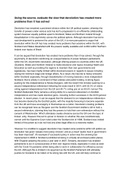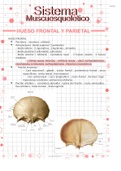Essay
Evaluate the view that devolution has created more problems than it has solved A*
- Module
- Devolution
- Institution
- PEARSON (PEARSON)
A* Politics essay on the question of whether devolution has created more problems than it has solved. Initially was a source question. Scored 29/30. Hope this can be of use!
[Show more]








